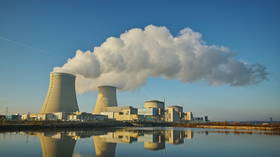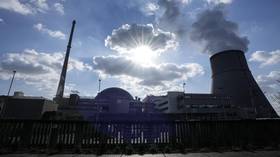French power prices for next winter soaring – Bloomberg

Electricity prices in France for next winter are already twice as high as Germany's as the country struggles to restart its aging atomic stations, Bloomberg reported on Wednesday.
France generates roughly 70% of its electricity from a nuclear fleet of 56 reactors, all operated by state-owned utility EDF. Most of them faced recurring corrosion issues and were either shut down or undergoing maintenance, causing a sharp drop in power generation.
Reduced nuclear power output has led to a dramatic increase in the cost of electricity driving French power prices for the first quarter of 2024 to €416 ($455) per megawatt-hour (MWh), more than double Germany's rate of €169, the outlet said.
Analysts attribute such a "massive" gap of nearly €250 per megawatt-hour to risks that traders are pricing in as France's nuclear power generation still remains below historical averages.
"No participants want to risk being short next winter," analysts at Engie SA's EnergyScanthey wrote.
France, which used to be a power exporter, is expected to rely heavily on electricity imports from neighboring countries including Germany to meet its demand next winter.
Meanwhile, Germany shut down its last three nuclear power plants on Saturday, ending more than six decades of commercial nuclear energy use despite continued concerns about energy security following a cut in Russian gas supplies. However, the EU's largest economy is still heavily dependent on coal-fired power plants.
While the deficit in natural gas in Germany was one reason for reviving coal, another is growing consumption in France. According to earlier forecasts from the statistics service Destatis, Germany may become a net exporter of electricity to France for the first time since at least 1990.
For more stories on economy & finance visit RT's business section













